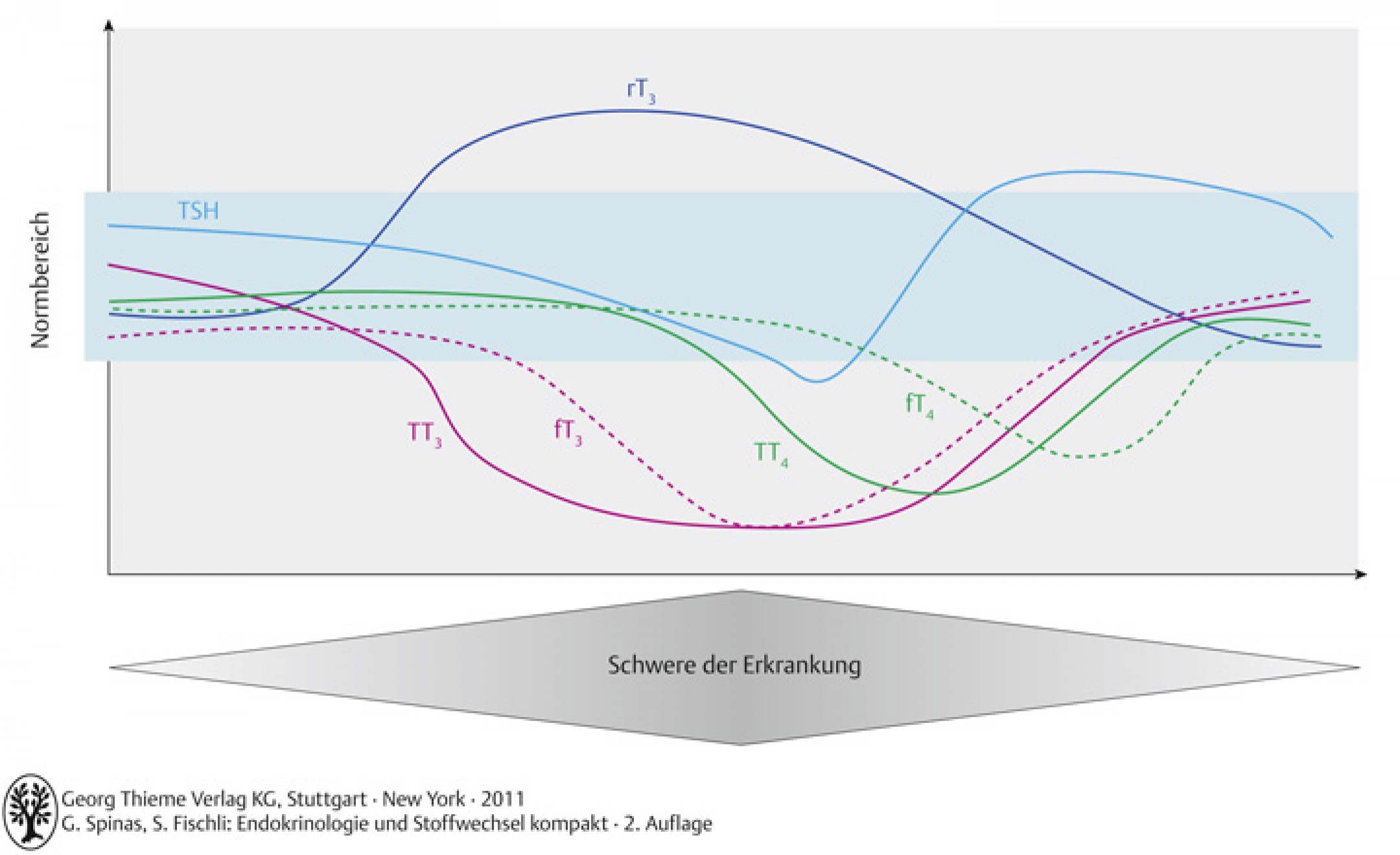
Thyroid function generally returns to normal as the acute illness resolves. Data on the beneficial effect of thyroid hormone treatment on outcome in critically ill patients are so far controversial. It commonly occurs following severe illness or prolonged periods of starvation. Hormonal changes can be seen within the first hours of critical illness and, interestingly, these changes correlate with final outcome. Euthyroid sick syndrome (ESS) or non-thyroidal illness syndrome is a condition in which the thyroid hormone T3 (triiodothyronine) circulating in the blood is low, without having an actual thyroid disorder.

Medications also have a very important role in these alterations. The changes in serum thyroid hormone levels in the critically ill patient seem to result from alterations in the peripheral metabolism of the thyroid hormones, in TSH regulation, in the binding of thyroid hormone to transport-protein and in receptor binding and intracellular uptake. What Is Euthyroid Sick Syndrome Learn how abnormal thyroid test levels along with an acute illness can point to euthyroid sick syndrome. This condition may affect 60 to 70% of critically ill patients.

The laboratory parameters of this syndrome include low serum levels of triiodothyronine (T3) and high levels of reverse T3, with normal or low levels of thyroxine (T4) and normal or low levels of thyroid-stimulating hormone (TSH).

The nonthyroidal illness syndrome, also known as the low T3 syndrome or euthyroid sick syndrome, describes a condition characterized by abnormal thyroid function tests encountered in patients with acute or chronic systemic illnesses. The metabolic support of the critically ill patient is a relatively new target of active research and little is as yet known about the effects of critical illness on metabolism.


 0 kommentar(er)
0 kommentar(er)
